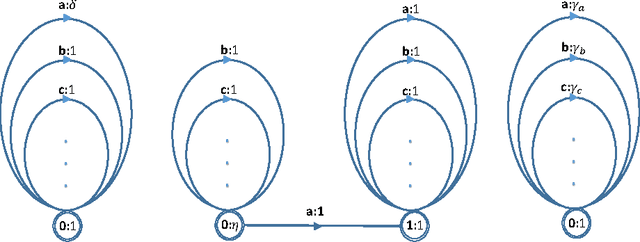Symbolic Priors for RNN-based Semantic Parsing
Paper and Code
Sep 20, 2018


Seq2seq models based on Recurrent Neural Networks (RNNs) have recently received a lot of attention in the domain of Semantic Parsing for Question Answering. While in principle they can be trained directly on pairs (natural language utterances, logical forms), their performance is limited by the amount of available data. To alleviate this problem, we propose to exploit various sources of prior knowledge: the well-formedness of the logical forms is modeled by a weighted context-free grammar; the likelihood that certain entities present in the input utterance are also present in the logical form is modeled by weighted finite-state automata. The grammar and automata are combined together through an efficient intersection algorithm to form a soft guide ("background") to the RNN. We test our method on an extension of the Overnight dataset and show that it not only strongly improves over an RNN baseline, but also outperforms non-RNN models based on rich sets of hand-crafted features.
 Add to Chrome
Add to Chrome Add to Firefox
Add to Firefox Add to Edge
Add to Edge